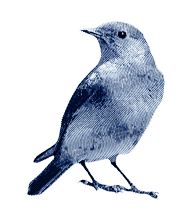Performance Anxiety
Have you ever said “I could play it better at home.”? If so, you probably know all too well that performance anxiety can cause all sorts of distractions, including clammy hands, sweating, itching, shaking hands and feet, and difficulty thinking clearly. Before my final piano recital in undergrad, I even had a nightmare in which the grand piano and bench were tilted at a 45 degree angle on stage, and I kept sliding off the bench as I tried to play my pieces. Performance jitters can strike unexpectedly in the middle of playing a piece, or the anxiety can build for days in anticipation of an audition or recital. The good news is that over time, this extra energy and awareness can help us to focus and play our best, rather than be a distraction.
One of the most important ways to address performance anxiety is to practice performing. The more often you play for other people, the less intimidating it will become. Try to play at least a small section of a song on a weekly basis for anyone who will listen, such as a family member, friend or small group of people who are supportive. Playing periodically in a group performance class for other students who take lessons from your same teacher is helpful, and studio recitals extend that circle to friends and family of those who are on the same journey of studying music. Also consider playing music for others in a retirement home or nursing home, where those in attendance are incredibly grateful to hear live music.
Another tool to help with performance anxiety is to frequently record your own playing using a tape recorder or digital recorder. Listening to the recording is not always necessary or helpful, as the goal here is to practice playing under pressure.
The mental aspect of playing under pressure is also worth exploring. Our awareness is significantly heightened when performing, causing tiny slips and stumbles to feel huge and dramatic. Sometimes we have a specific fear, but usually we are harder on ourselves than anyone else could be. Consider what the worst thing is that could possibly happen, and work to put the event into perspective. Positive visualization can help, such as imagining yourself completing the steps of a smooth and successful performance from beginning to end. Creative imagery calms the mind—imagine playing at the lakeshore in a peaceful sunset. When practicing at home, occasionally imagine that you are playing for a roomful of people and act accordingly.
Many other small things that make a difference with anxiety. While we tend to focus on practicing to adequately prepare our music, it is also important to exercise, sleep well, eat properly before playing (avoid sugar or caffeine jitters), arrive early, allow for some quiet time, and take some deep breaths.
With practice and good preparation, playing for other does become easier. The best part of all is that the confidence gained by working through our fears at the piano and learning to prepare well for performance carries over into every aspect of life. Giving presentations of any sort becomes easier, such as book reports for children or presentations in your professional work. Before long, you may be eagerly awaiting the next recital or musical gathering of friends!


